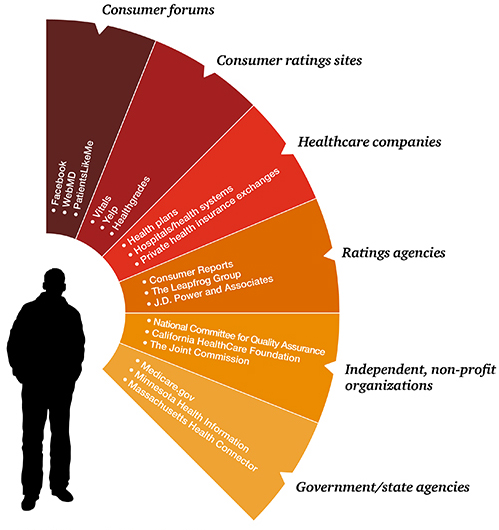 Scoring healthcare: Navigating customer experience ratings
Scoring healthcare: Navigating customer experience ratings
PwC’s Health Research Institute (HRI) provides research and analysis on trends impacting various health industries. The Institute publishes the results of its research. The Institute’s latest report, Scoring healthcare: Navigating customer experience ratings, finds companies that translate consumer feedback into improved quality and better experience stand to reap rewards.
According to a recent survey conducted by HRI, 48 percent of respondents said they have read healthcare reviews, although only one-quarter (24 percent) said they have written one. However, once consumers read a review, the information proves influential. Among those who have read healthcare reviews, 68 percent said they have used the information to select a doctor, hospital and to a lesser extent, a health plan, pharmacy and drug or medical device.
“Healthcare organizations are increasingly operating in a world in which the voice of the consumer impacts the bottom line, and where customer experience is now a matter of dollars and cents,” said Kelly Barnes, PwC’s U.S. health industries leader. “As consumerism in healthcare gains steam, customer feedback has become a determining factor in the success of health organizations. Ratings connect consumers’ experience to quality, and quality connects to financial performance, market share and reputation.”
Unlike entertainment and retail customers who actively rate products and services and use reviews to make decisions, the health industry has not yet seen the same level of consumer engagement and participation. In lieu of a single, trusted, independent rating system for health organizations, consumers are turning to what they already know – various online social and group discussion channels such as Consumer Reports, Facebook and Yelp. HRI identifies other factors that contribute to the slower uptake of ratings in health, including the power of personal relationships and the perception that individuals do not have choice in healthcare.
 PwC’s Barnes added, “Consumers are looking for easy-to-understand information from sources they can trust. They care most about the physician-patient relationship, what to do after a hospital visit and how to obtain smooth service from their health plan.” According to HRI, a number of organizations are developing standards and more user-friendly data sites. Retailers and other consumer-focused industries also are beginning to apply their expertise to better market health-related products and services.
PwC’s Barnes added, “Consumers are looking for easy-to-understand information from sources they can trust. They care most about the physician-patient relationship, what to do after a hospital visit and how to obtain smooth service from their health plan.” According to HRI, a number of organizations are developing standards and more user-friendly data sites. Retailers and other consumer-focused industries also are beginning to apply their expertise to better market health-related products and services.
Patient satisfaction is now embedded into Medicare payment policies. Insurers that serve Medicare beneficiaries stand to gain at least $5 billion in bonus payments linked directly to patient feedback. In 2013 alone, Medicare will shift $850 million in provider pay based in part on patient satisfaction scores. Over the long term, proponents say greater consumer engagement translates into smarter care choices, healthier behavior and reduced costs.
Scoring Healthcare provides insight on how health organizations can tap into the power of customer ratings:
- Sort by “people like me.” Ratings and reviews exist in many shapes and sizes, but what consumers really want is information that is relevant to them.
- Exchange policies on health plans may become more popular. Medicare Advantage members can switch to a 5-star rated plan at any time if their current health plan falls below five stars. If this practice spreads to commercial plans, it could add one more reason for insurers to bolster customer service now.
- Navigator roles should connect care and coverage. Individuals, such as customer service representatives or brokers, now help consumers obtain coverage, but the assistance often stops there. Consumers need help wading through coverage and care decisions long after signing up.
- Combine experience data. As more accountable care arrangements develop, insurers, hospitals and physicians can use experience data from several consumer surveys to create a more complete portrait of patients and a more coordinated care path.
To download a full copy of the report at www.pwc.com/us/scoringhealthcare.
